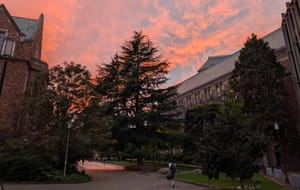Cambridge University Library has launched an interesting new website science@Cambridge. It provides the increasingly common combination of metasearch, catalog and e-resource search. However, around this it provides a range of contextual services, many of them feed-based and dynamic. What I thought was especially interesting was the focus on providing access to collections and to library staff within a fuller user experience.

Here is the rationale:
Science@cambridge aims to draw users into a virtual library space giving them immediate access to electronic information from their desktop, tools to help them navigate through the vast number of sources available, as well as on-line real-time help from library subject-experts.
This development acknowledges that for many of those working in contemporary science the library is now largely a ‘virtual resource’. Science@cambridge will increase access to and knowledge of scientific electronic resources. It will help users discover, search across and improve the use of science e-resources, generally and within discipline specific areas. [Latest News]
At the top level there is a cloud-based navigation option, Yahoo Pipes-based feed aggregation of relevant feeds (podcasts, blogs), links to relevant other sites, a LibraryThing-based new books feature, and the now familiar addthis to your favorite bookmarking service.
The structure carries through the subject pages, where there is also specific information about library services and a Meebo widget for online connection to library staff.
I will be in Cambridge in a week or two and look forward to talking with the developers about where they plan to take this. I wondered about more local material, for example, showing articles, blogs, etc by Cambridge academic staff in the relevant subject areas.
Looking at the site I was reminded of a quote from the BBC that I have used here a couple of times already – about a ‘feed-based universe’. One of the issues that a site like this highlights is the boundary between the library resources (in the catalogue, metasearch application, and list of e-resources) and the feed/link based approach of the contextual materials.
From a conceptual point of view, the widgetization adopted by Facebook, iGoogle and netvibes weighed strongly on our initial thinking. We wanted to build the foundation and DNA of the new site in line with the ongoing trend and evolution of the Internet towards dynamically generated and syndicable content through technologies like RSS, atom and xml. This trend essentially abstracts the content from its presentation and distribution, atomizing content into a feed-based universe. Browsers, devices, etc therefore become lenses through which this content can be collected, tailored and consumed by the audience. [BBC Internet Blog]



